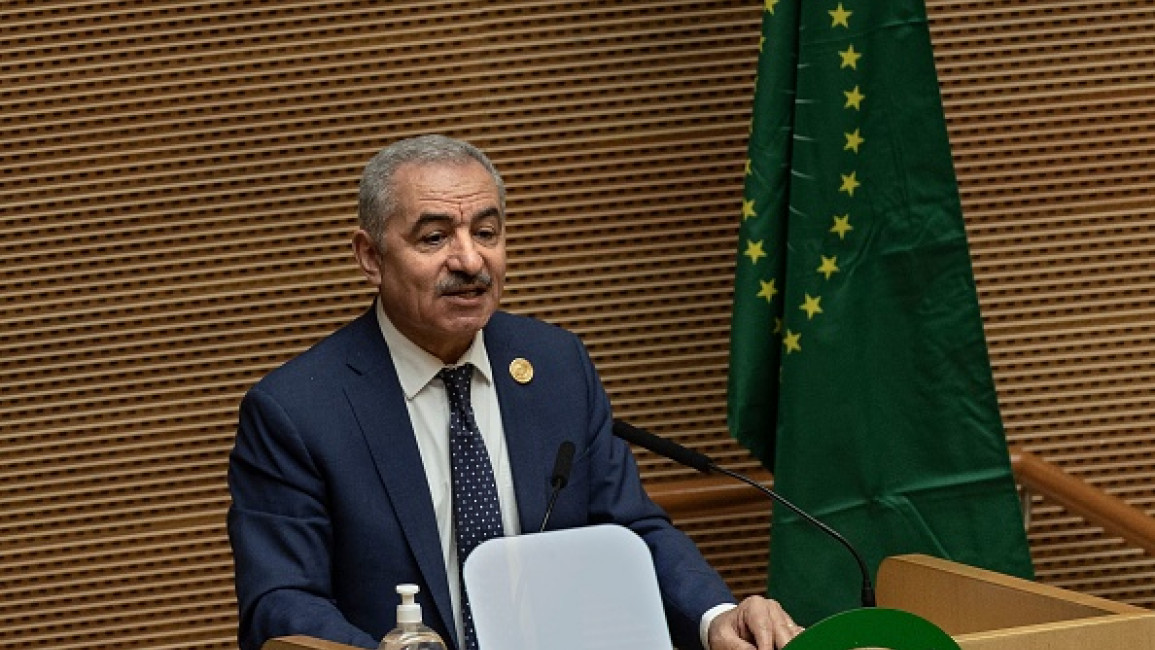
Africa's Palestine solidarity is eclipsing that of the Arabs
When Ahmed Aboul Gheit, Secretary-General of the Arab League branded recent Israeli comments that "the Arabs are now their friends" as "untrue", he was not lying.
In truth, the word "friendship" falls far short when describing the actual nature of Arab-Israeli relations today (by which I mean an increasing number of the Arab states). In fact, what we are witnessing dramatically exceeds the notion of "friendship" in the same way that "normalisation" has become a word wholly inadequate to express the reality of Arab-Israeli relations.
Let's take for example the mounting alliances and partnerships – both military and economic – between Israel and a growing number of Arab states. Another example; the direct shuttle service to-be-opened imminently between the port of Damietta in Egypt and a number of Israeli ports; and the fact that the value of annual net trade between Cairo and Tel Aviv today amounts to nearly $700,000,000.
"Normalisation" has become a word wholly inadequate to express the reality of Arab-Israeli relations"
And then, we hear the Egyptian president gladly announce that "the time has come for Israel's integration in the region", meanwhile observing the non-stop high-level military visits being exchanged between Rabat and Tel Aviv as their bond grows ever closer. All of this indicates that the situation goes far beyond the mere normalisation of relations ( or friendship); what we are witnessing are in fact deepening strategic partnerships.
Moreover, when the commitment shown by certain Arab states to convening an annual "Negev Forum" – with Israel – eclipses any sense of obligation they show towards the Arab League and its activities, it seems that these relations of increasingly intimate cooperation are more about harming the Palestinians than they are about a normalisation process.
In this context, it is no surprise to find Algeria the only Arab state in the African Union (AU) playing an active role in the African front struggling against Zionist encroachment on the African continent. The most recent chapter of this confrontation was on 18 February when Algeria led a successful diplomatic move that saw the Israeli representative expelled from the AU Summit in Addis Ababa.
Likewise, Algeria was at the forefront of the commendable African effort to suspend the shameful decision which the AU Commission's former president Moussa Faki Mahamat took unilaterally in July 2021 when he granted the Zionist state observer status.
Algeria, South Africa and Nigeria successfully mobilised AU member states to have the decision suspended, frustrating - for now - the drive to further facilitate Israel's integration in Africa. This mission – to expand Israel's influence within Africa - was launched with much fanfare in 2016 when Israeli PM Netanyahu embarked on a tour of seven African states, declaring: "Israel is coming back to Africa, and Africa is coming back to Israel."
During the fierce, diplomatic battle outlined above, Egypt has contented itself with watching from the sidelines. Then, when the battle in the AU was won – albeit temporarily - for Palestine, Egypt clapped and gushed its congratulations.
Meanwhile, another African Arab state, the Kingdom of Morocco - whose king calls himself "Chair of the Al-Quds Committee" - actively supported the resolution accepting the bid for observer status by Israel – despite its illegal occupation of Al-Quds (Jerusalem) and Palestine. Meanwhile, Arab League Secretary-General Aboul Gheit didn't utter a word before the decision was discussed, only expressing the League's welcome of the step [to suspend the decision] after the event.
It is regrettable that Egypt's role, as an African state, has dwindled to the extent that it contents itself with passively observing the progression of official relations between Africa and Israel, testifying to its resounding withdrawal from its historic role on the continent, as it becomes ever more isolationist within Africa, at the same time as expanding its bilateral relations with Israel.
To justify Egypt's retreat from its longstanding role in the Arab and Palestinian conflict, Boutros Boutros-Ghali (Minister of State for Foreign Affairs under Anwar Sadat), asked in his book, Between the Nile and Jerusalem, what Egypt's decision would be if it had to choose between the Arab world and Africa. What is more important to Egypt, he wrote rhetorically; "the Nile, as a symbol of the future, or Jerusalem, as a symbol of the past?" Geography, or History?
“From Africa to Palestine, United Against Apartheid.”
— BDS movement (@BDSmovement) March 10, 2022
For the first time ever, activists from over 20 African states will gather in Dakar for the Pan-African Anti-Apartheid Conference organised by @PalestinePapsn.#EndIsraeliApartheid#AfricaOutOfAUhttps://t.co/WRvwqdzTW1
He didn't take long to answer his own question: Geography was more important, and Egypt's concern should focus on Africa and the Nile, rather than on Jerusalem and Palestine.
Somewhat ironically, Egypt's interest in geography has also now fallen by the wayside, the state having apparently abandoned concern for both its history (Palestine and Jerusalem) and geography (Africa and the Nile). This state of affairs has seen states like South Africa and Nigeria become "more Arab than the Arabs" when it comes to their bond of solidarity with the Palestinians and response to Israel's occupation of Palestine.
Current events bear witness to the fact that the Palestinian cause encounters a more genuine solidarity in Africa today than in the Arab world. The latter is steeped in its feverish quest to grow bilateral relations with Israel even as – with the peak of hypocrisy – the very same states still pay lip service to themselves as "partners" in Africa's struggle against ongoing Zionist encroachment.
Wael Kandil is an Egyptian author and journalist, and former editor-in-chief of Al-Araby Al-Jadeed.
Follow him on Twitter @waiel65
Article translated from Arabic by Rose Chacko
Have questions or comments? Email us at: editorial-english@alaraby.co.uk
Opinions expressed in this article remain those of the author and do not necessarily represent those of The New Arab, its editorial board or staff, or the author's employer.


![Minnesota Tim Walz is working to court Muslim voters. [Getty]](/sites/default/files/styles/image_684x385/public/2169747529.jpeg?h=a5f2f23a&itok=b63Wif2V)




